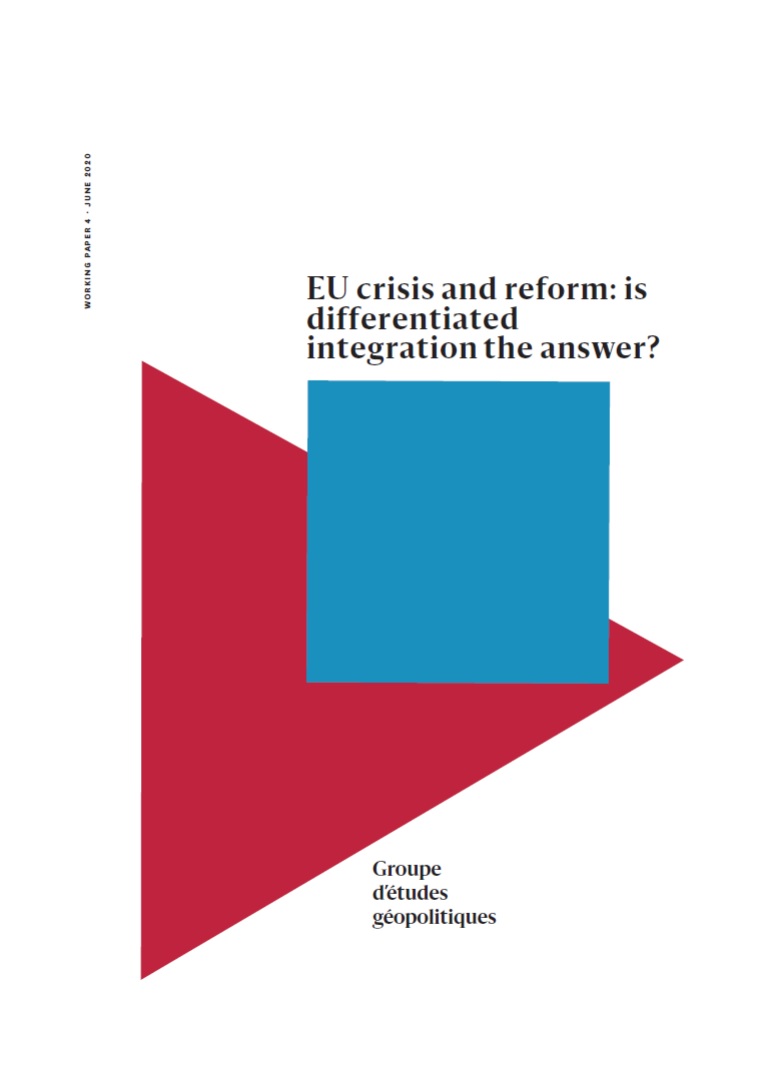EU crisis and reform : is differentiated integration the answer ?
Frank Schimmelfennig
Professor of European Politics and a member of the Center for Comparative and International Studies at ETH Zurich Télécharger le pdf
16/06/2020

EU crisis and reform : is differentiated integration the answer ?

Frank Schimmelfennig
Professor of European Politics and a member of the Center for Comparative and International Studies at ETH Zurich
16/06/2020

 Voir tous les articles
Voir tous les articles
EU crisis and reform : is differentiated integration the answer ?
Heterogeneous data, knowledge and profiles that rarely meet must be brought together to give shape, during the crisis, to the world that will come after. The Groupe d’études géopolitiques publishes today, within the framework of the Covid-19 Geopolitical Observatory, its forth working paper which applies key theoretical and empirical insights from past differentiation to areas of current EU crisis and reform : the Eurozone, Schengen and Brexit.
EU crisis and reform : is differentiated integration the answer ?
The Covid-19 pandemic reinforces the crises of integration that the European Union has experienced in the past decade. The asymmetric Corona shock exacerbates the existing divides in economic performance and fiscal health between Northern and Southern European member states and puts new pressures on the cohesion of the Eurozone.
Unilateral border closures in reaction to the spread of the virus have further disrupted the Schengen area, which was still suffering from the 2015 high influx of refugees. Finally, the pandemic hit during the crucial phase of the negotiations on the post-Brexit economic relations between the European Union and the United Kingdom. The principle of ‘level playing field’ at the heart of the EU internal market is not only tested in these negotiations, but further endangered by the suspension of the EU rules on state aid. In all of these areas of crisis, reforms were deadlocked before the pandemic – and it is an open question whether the Covid-19 shock will unlock negotiations or further shrink the room for agreement.
In an ever more heterogeneous and contested EU, differentiated integration has facilitated substantially the deepening and widening of European integration. It has been particularly effective in kick starting the integration of new policies and the admission of new member states.
Differentiation is less suitable, however, to address the main current challenges to the EU : the repair and reform of crisis-ridden highly integrated policies. To illustrate the difficulties, this working paper applies key theoretical and empirical insights from past differentiation to areas of current EU crisis and reform : the Eurozone, Schengen and Brexit.
citer l'article
Frank Schimmelfennig, EU crisis and reform : is differentiated integration the answer ?, Jun 2020,




